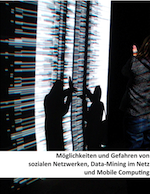Our book chapter about „@twitter analysis of #edmediaXX– is the #informationstream usable for the #mass“ is now online available. Enjoy the reading.
Abstract:
In this paper we report the use of an application that enables an automatic analyses of social media content. In this early stage of development our work focuses on data from Twitter1 as currently to be the most popular and fastest growing microblogging platform. After an introduction about a general concept the conference tweets of a big e-learning conference are examined twice. It is aimed to show whether there is a possibility to get significant information from a pool of postings or not. The publication concludes that a keyword extraction can be taken as basis for further investigations and treatment of data.
@twitter analysis of #edmediaXX– is the #informationstream usable for the #mass by Martin
Klicken Sie auf den unteren Button, um den Inhalt von www.scribd.com zu laden.
Reference: Ebner, M.; Altmann, T.; Softic. (2013) @twitter analysis of #edmediaXX – is the informationstream usable for the #mass. In: Microbloggin in Educational Settings. Holotescu, C.; Grosseck, G.; Calvani, A. & Bruni, F. (Eds.), AVM – Akademische Verlagsgemeinschaft, Munich 2013, pp. 55-70

